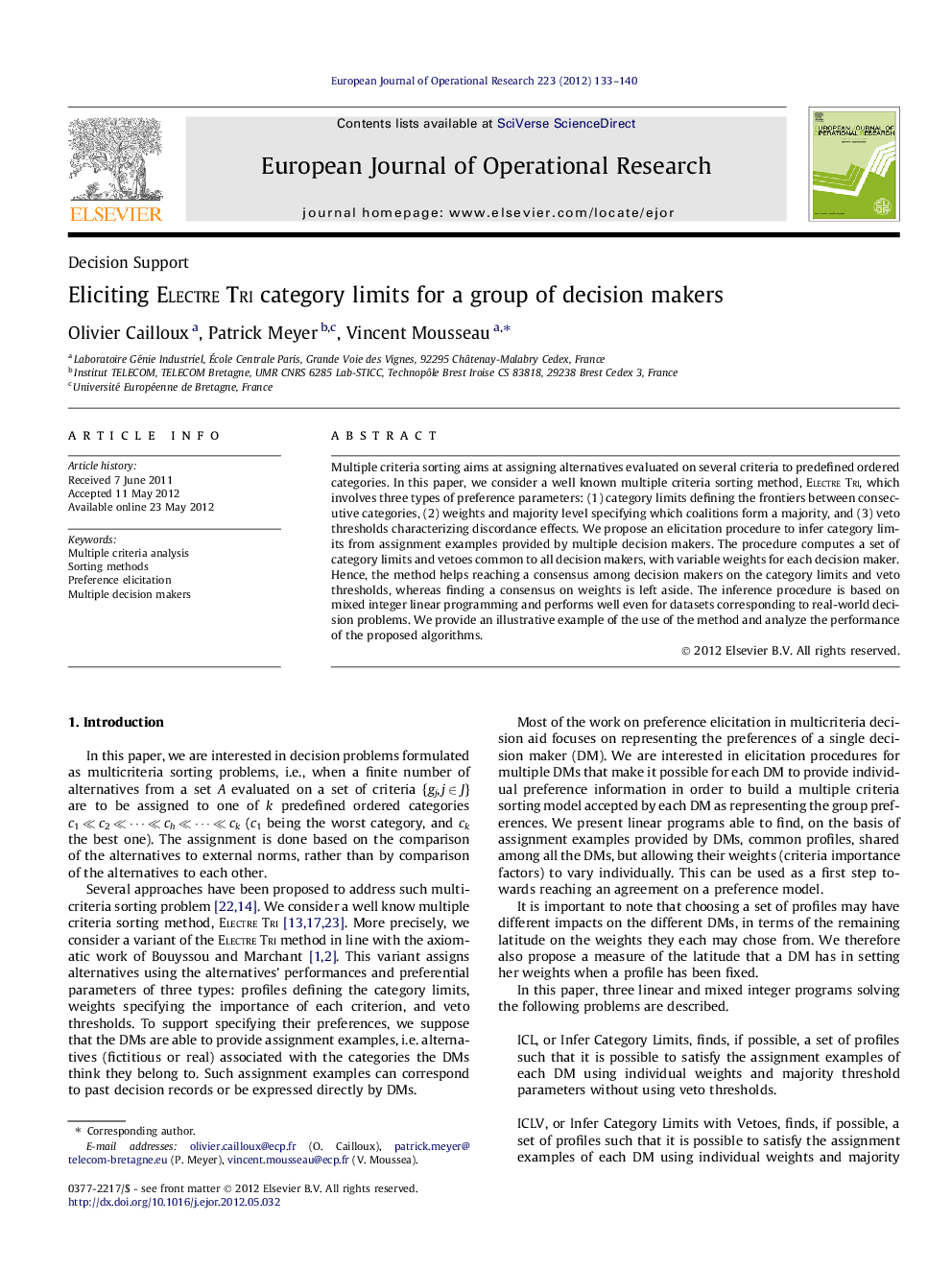| Article ID | Journal | Published Year | Pages | File Type |
|---|---|---|---|---|
| 478353 | European Journal of Operational Research | 2012 | 8 Pages |
Multiple criteria sorting aims at assigning alternatives evaluated on several criteria to predefined ordered categories. In this paper, we consider a well known multiple criteria sorting method, Electre Tri, which involves three types of preference parameters: (1) category limits defining the frontiers between consecutive categories, (2) weights and majority level specifying which coalitions form a majority, and (3) veto thresholds characterizing discordance effects. We propose an elicitation procedure to infer category limits from assignment examples provided by multiple decision makers. The procedure computes a set of category limits and vetoes common to all decision makers, with variable weights for each decision maker. Hence, the method helps reaching a consensus among decision makers on the category limits and veto thresholds, whereas finding a consensus on weights is left aside. The inference procedure is based on mixed integer linear programming and performs well even for datasets corresponding to real-world decision problems. We provide an illustrative example of the use of the method and analyze the performance of the proposed algorithms.
► We consider a multiple criteria sorting problem involving several decision makers. ► We use a simplified version of the Electre Tri method. ► We infer a sorting model from assignment examples provided by the decision makers. ► We infer category limits shared by the decision makers while leaving their weights variable.
